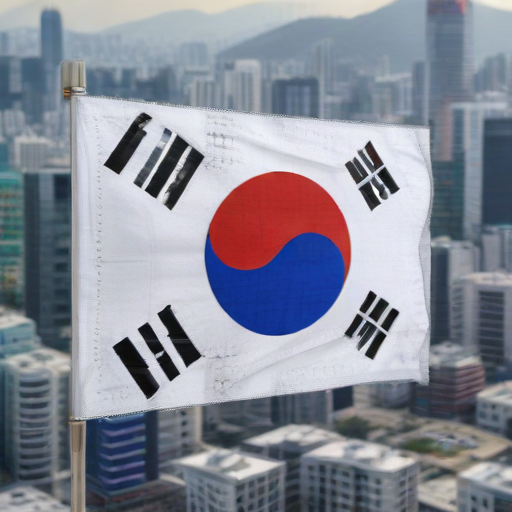South Korea is experiencing a notable increase in productivity stemming from advancements in artificial intelligence (AI), a phenomenon highlighted by Bank of America analysts. This surge is further supported by the country’s significant presence in the semiconductor sector, which constitutes 17% of South Korea’s exports. The report indicates that South Korea has emerged as a major beneficiary of the AI boom, with exports rising over 50% year-over-year.
The long-term outlook for South Korea in the realm of AI appears positive, thanks to substantial investments in research and development as well as a growing portfolio of AI-related patents. However, this bright scenario may face challenges due to geopolitical tensions, particularly the escalating rivalry between the United States and China. Such tensions could impact the semiconductor supply chain, threatening the rapid advancement of AI in South Korea.
Despite the country’s efforts to diversify its chip exports beyond China, over 30% of its chip exports in 2023 still went to China and Hong Kong. Analysts at Bank of America caution that if geopolitical tensions worsen and the U.S. enforces stricter trade restrictions on advanced chips destined for China, the memory semiconductor exports from South Korea may take a hitting blow.
Moreover, South Korean chip manufacturers rely on China for critical chipmaking components and equipment. Any disruptions in this supply chain could hinder the ability of these firms to manufacture chips effectively. The U.S. has already requested that South Korea impose restrictions on exporting chipmaking equipment and technology to China, a move that could have significant repercussions for major companies such as Samsung and SK Hynix.
In response, the Biden administration is contemplating the implementation of export controls, particularly the foreign direct product rule, which would prevent the export of goods manufactured with a specific percentage of U.S. intellectual property to countries like China.
In summary, while South Korea has positioned itself advantageously in the AI landscape through unprecedented productivity gains and a flourishing semiconductor sector, the looming geopolitical challenges pose potential risks that could hinder its progress. Nevertheless, South Korea’s commitment to AI innovation offers hope for continued growth and resilience in navigating these challenges.
A positive outlook suggests that, if managed wisely, South Korea could utilize its advancements in AI and semiconductor production to foster new partnerships and avenues for growth, turning potential threats into opportunities for innovation and economic expansion.
